What is Polyisobutylene (PIB), and How is it Used in the Automotive Industry?
What is a Transmission Fluid?
Polyisobutylene (PIB), a synthetic polymer derived from isobutylene, has established itself as a crucial material in various industrial applications, particularly in the automotive industry. Renowned for its gas impermeability, chemical resistance, and elasticity, PIB is an essential ingredient in several automotive components and formulations. From improving fuel efficiency to enhancing vehicle durability, its role is multifaceted and indispensable.
Understanding Polyisobutylene (PIB): Composition and Properties
Polyisobutylene is a polymer formed by polymerizing isobutylene monomers. It is available in different molecular weight grades, tailored for specific industrial uses.
Key Properties of PIB:
- Elasticity and Strength: Makes it ideal for dynamic and flexible applications.
- Moisture and Gas Barrier: Highly impermeable, perfect for airtight seals.
- Resistance to Oxidation: Prevents degradation from environmental exposure.
- Thermal Stability: Performs well in extreme temperature conditions.
Its versatility and customizable properties make PIB a material of choice for automotive engineers.
Historical Development of Polyisobutylene
Polyisobutylene has a rich history that dates back to the early 1930s. Initially recognized for its use in tire inner tubes, its utility has expanded significantly over the decades.
Key Historical Highlights:
- 1930s: PIB used for airtight tire inner liners, revolutionizing the rubber industry.
- 1950s: Introduction of PIB-based additives in lubricants and fuels.
- Modern Era: Expanded use in high-performance EV components and advanced adhesives.
Over the years, advancements in polymer chemistry have unlocked new possibilities for PIB in automotive manufacturing.
The Role of Polyisobutylene in Automotive Manufacturing
The automotive industry demands materials that combine performance, reliability, and cost-efficiency. PIB meets these demands by enhancing the functionality and durability of various automotive components.
Why PIB is Essential in Automotive Manufacturing:
- Contributes to long-lasting engine efficiency.
- Provides cost-effective solutions for sealing and bonding.
- Supports compliance with strict environmental regulations.
- Facilitates advancements in electric vehicle (EV) technology.
These qualities position PIB as a cornerstone material in automotive design.
Polyisobutylene in Automotive Seals and Gaskets
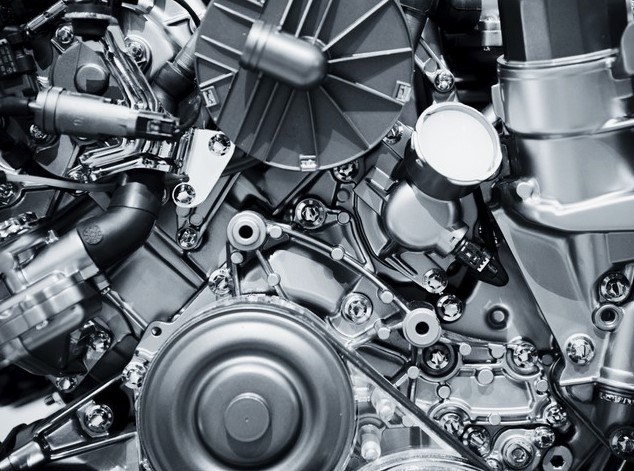
Seals and gaskets are critical components in automotive systems, ensuring leak prevention and pressure maintenance. PIB is extensively used to manufacture these components due to its superior sealing capabilities.
Applications in Seals and Gaskets:
- Engine Systems: Ensures efficient operation by preventing oil and gas leaks.
- Transmission Systems: Maintains pressure and prevents fluid contamination.
- Air Conditioning Systems: Keeps refrigerants from escaping, improving efficiency.
Advantages of PIB:
- Enhances durability under thermal and mechanical stress.
- Reduces maintenance costs by prolonging component life.
- Performs consistently across a wide range of temperatures.
PIB’s chemical resistance and elasticity make it an irreplaceable material for seals and gaskets.
The Use of PIB in Lubricant Formulations
PIB plays a vital role in modern lubricants by improving their performance and longevity. It is used in both engine oils and industrial lubricants to optimize efficiency and minimize wear.
Key Contributions of PIB in Lubricants:
- Viscosity Enhancement: Maintains consistency at various temperatures.
- Anti-Sludge Properties: Prevents the buildup of harmful deposits.
- Extended Service Intervals: Reduces the frequency of oil changes, saving time and cost.
How PIB Boosts Engine Performance:
- Minimizes friction, reducing energy loss.
- Protects against oxidation and corrosion.
- Improves cold-start performance, critical in colder climates.
These properties have made PIB a preferred additive in high-performance lubricants.
PIB-Based Adhesives and Coatings for Vehicles
Adhesives and coatings are essential in automotive assembly, where precision and durability are paramount. PIB-based formulations excel in both structural bonding and protective coatings.
Applications of PIB in Adhesives and Coatings:
- Structural Integrity: Ensures strong bonding of dissimilar materials like metal and plastic.
- Weatherproofing: Provides resistance to UV light, moisture, and chemicals.
- Aesthetic Finishing: Creates a smooth, uniform appearance on vehicle exteriors.
Additional Benefits:
- Reduces noise and vibration by dampening movements.
- Improves energy efficiency by reducing drag with aerodynamic coatings.
These features enhance vehicle durability and safety while maintaining a sleek appearance.
Fuel Additives and Emission Reduction
Polyisobutylene’s use as a fuel additive has gained traction for its ability to improve combustion efficiency and reduce emissions. This is particularly relevant in light of stringent environmental regulations.
How PIB-Based Additives Improve Fuels:
- Prevent carbon buildup in the engine, ensuring optimal performance.
- Stabilize fuel combustion, reducing the risk of engine knock.
- Enhance fuel economy by improving engine efficiency.
Impact on Emissions:
- Significantly lowers harmful pollutants such as CO2 and NOx.
- Helps vehicles meet global emission standards, such as Euro 6 and US EPA Tier 3.
PIB is a vital component in creating greener and more efficient automotive solutions.
Polyisobutylene in Electric Vehicle Technology
As the automotive industry transitions toward electric vehicles (EVs), the role of PIB is expanding into new frontiers. Its properties are proving invaluable in addressing unique challenges in EV design and performance.
Emerging Applications of PIB in EVs:
- Thermal Management: Used in cooling systems to maintain optimal battery temperatures.
- Electrical Insulation: Protects sensitive components from electrical damage.
- Lightweight Materials: Contributes to the development of lightweight composites, increasing vehicle range.
Advantages in EVs:
- Enhances energy efficiency by reducing thermal losses.
- Improves the safety and reliability of battery systems.
- Aligns with the industry’s push for sustainable and recyclable materials.
PIB’s adaptability ensures its relevance in the rapidly evolving EV market.
Challenges in Polyisobutylene Applications
Despite its numerous advantages, PIB faces certain limitations and challenges that must be addressed to fully realize its potential.
Challenges in PIB Applications:
- High Production Costs: Manufacturing high-grade PIB requires specialized processes, increasing costs.
- Non-Biodegradability: Its resistance to degradation poses challenges for environmental sustainability.
- Limited Awareness: Many industries are unaware of PIB’s full potential, slowing its adoption.
Efforts to Address These Challenges:
- Development of biodegradable PIB variants.
- Investment in recycling technologies to manage waste.
- Increased collaboration between researchers and industries for innovation.
Overcoming these challenges will unlock new opportunities for PIB in diverse applications.
The Future of Polyisobutylene in the Automotive Industry
The future of PIB is bright, with its applications set to expand further as the automotive industry evolves. Innovations in polymer science and sustainable practices are paving the way for enhanced PIB utility.
Future Trends in PIB Usage:
- Green Manufacturing: Focus on reducing the environmental footprint of PIB production.
- Advanced Materials: Development of PIB-based nanocomposites for next-generation vehicles.
- EV Integration: Greater emphasis on applications in EVs and hybrid technologies.
Potential Innovations:
- Self-healing coatings for vehicle surfaces.
- Intelligent fuel additives that adapt to driving conditions.
- Use in hydrogen fuel cells for enhanced performance.
These advancements will solidify PIB’s position as an essential material in modern and future automotive manufacturing.
Final Thoughts
Polyisobutylene (PIB) stands as a testament to the power of polymer science in transforming industries. Its unique properties, ranging from gas impermeability to chemical resistance, make it a cornerstone material in the automotive sector. Whether enhancing engine efficiency, protecting components, or contributing to electric vehicle advancements, PIB is integral to automotive innovation.
As sustainability and innovation continue to shape the automotive industry, PIB will undoubtedly remain a key player in driving progress and redefining the limits of what is possible.
FAQs
As a fuel additive, PIB prevents the buildup of carbon deposits in engines, stabilizes fuel combustion, and reduces emissions. This leads to cleaner engines and improved fuel economy.
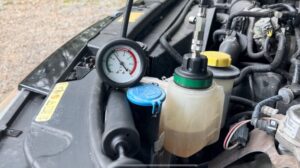
Radiator Stop Leak UAE: Quick Fix for Vehicle Cooling System Leaks
Radiator Stop Leak UAE: Quick Fix for Vehicle Cooling System Leaks Discover More Introduction: The Unforgiving UAE Climate and Your Vehicle’s Lifeline The United Arab Emirates’ automotive landscape is defined by extremes. Ambient temperatures that regularly surpass 45°C (113°F), coupled with intense urban congestion and long, high-speed desert drives, create a perfect storm of thermal stress for every vehicle. In this environment, your engine cooling system is not merely a subsystem; it is the single most critical component preventing catastrophic engine failure.
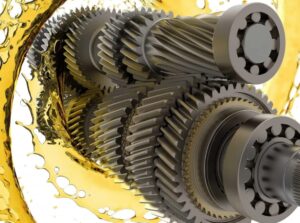
What Type of Transmission Oil in UAE Does My Car Need? Your Complete Guide
What Type of Transmission Oil in UAE Does My Car Need? Your Complete Guide Discover More Navigating the vast, sun-baked highways of the United Arab Emirates—from the dynamic urban sprawls of Dubai and Abu Dhabi to the majestic desert dunes and the tranquil mountain passes of the Hajar range—places extraordinary mechanical and thermal stress on every component of your vehicle. While conscientious drivers often prioritize engine oil changes, the vital lifeblood safeguarding the transmission, the complex heart of your car’s
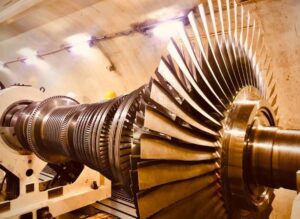
Guide to UAE Turbine Oil Selection Application & Management for Industrial Facilities
Guide to UAE Turbine Oil Selection, Application, and Management for Industrial Facilities Discover More In the hyper-competitive industrial landscape of the United Arab Emirates, where operational excellence directly translates to economic advantage, turbine lubrication represents a critical nexus of reliability engineering and strategic asset management. This comprehensive guide, developed with technical insights from Rumanza Lubricants, provides an unprecedented deep dive into the science, selection criteria, and life-cycle management of turbine oils specifically engineered for the extreme operating conditions of the
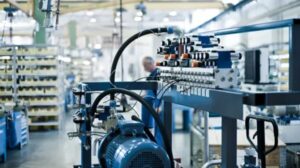
Synthetic vs. Mineral Hydraulic Oil in UAE : Which is Best for Your Operation?
Synthetic vs. Mineral Hydraulic Oil in UAE : Which is Best for Your Operation? Discover More Across the dynamic landscape of the United Arab Emirates—from the megaprojects of Dubai Marina to the intricate conveyor systems of Jebel Ali Port, from the massive hydraulic shovels in Al Dhafra quarries to the precision automated lines in Abu Dhabi’s industrial cities—the silent, powerful force of hydraulics is indispensable. These systems convert fluid power into monumental force and precise motion. At the core of

What is a Pour Point Depressant? | Benefits, Uses & How It Works Mechanism
What is a Pour Point Depressant? | Benefits, Uses & How It Works Mechanism Discover More In the intricate world of lubricant formulation, few additives play as critical yet understated a role in cold-weather operability as Pour Point Depressants (PPDs). These specialized chemical compounds are the linchpin that prevents machinery from seizing up when temperatures plummet. This in-depth guide goes beyond the basics, exploring the sophisticated chemistry, detailed mechanism, nuanced benefits, and practical considerations of PPDs. We will also examine the